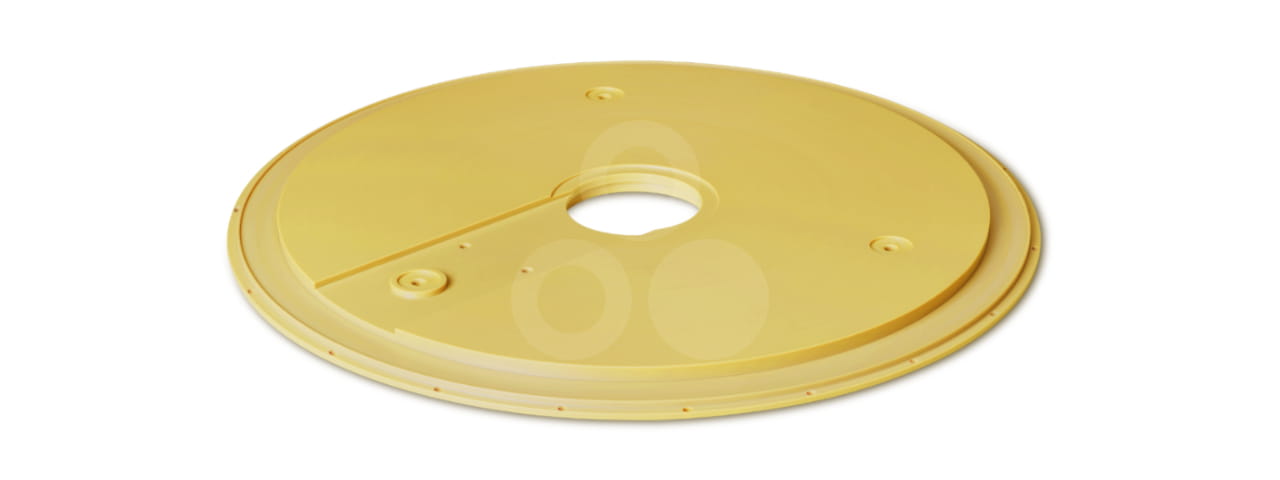Plasma etching shielding part
Components in semiconductor manufacturing equipment are commonly made of high performance plastics due to their high level of purity, machinability, and cost performance. As each stage of the fabrication process offers its own set of challenges, Ensinger offers a broad range of semiconductor grade materials that are engineered to withstand the extreme environments while providing clean and reliable performance.
Harsh processing conditions
For dry processes, such as plasma-enhanced CVD, plasma etching, or ion implantation processes, wafers and surrounding components are exposed to highly energetic and corrosive plasma. Parts in such processes also need to withstand temperatures above 250°C. Ensinger’s material recommendation in such processes is the TECASINT 4000 series, based on PI polyimide plastic, as it shows long-term thermal stability of 300 °C, high purity, and superior plasma resistance.
Both materials, TECASINT 4011 and TECASINT 4111 are very resistant to plasma, whereas TECASINT 4111 can be used at slightly higher temperatures due to its polyimide structure.
Both materials, TECASINT 4011 and TECASINT 4111 are very resistant to plasma, whereas TECASINT 4111 can be used at slightly higher temperatures due to its polyimide structure.
Withstanding aggressive plasma
Compared to the PI materials of other market players, TECASINT 4111 excels with better plasma resistance, which can be demonstrated by lower material loss in plasma. Thus, the PI plastic TECASINT 4111 performs with a comparatively low etching speed, even at high temperatures. The low weight loss over time also exemplifies the excellent performance of this material in plasma applications. As enhanced plasma resistance results in reduced particle shedding, TECASINT 4111 not only enables longer part lifetime, but also significantly improves process yield.
Etching rate

Weight loss

Exceptional temperature resistance
Another key advantage of PI materials is their excellent mechanical properties, which are maintained even at elevated temperatures. The Dynamic Mechanical Thermal Analysis (DMTA) shows the clear superiority in terms of flexural strength of polyimide plastic materials compared to unfilled PEEK, whose storage modulus drops sharply from approx. 160 °C. Furthermore, TECASINT 4111 shows a consistently higher performance in the temperature range from -150 °C to over 400 °C, even when compared to competing conventional polyimide materials. In this way, components made of TECASINT 4111 last longer and result in reduced cycle times and costs.
Dynamical Mechanical Thermal Analysis (DMTA)

Superior ionic purity
High purity and low outgassing in vacuum are critical for plasma chamber components to minimise contamination and unscheduled maintenance. TECASINT 4111 has been engineered to provide lower outgassing compared to industry standard PI, enabling clean performance and improved process yield. The outgassing rate remains on a low level even at high temperatures up to 300°C. TECASINT 4111 is the ideal material for critical dry process chamber components as it significantly contributes to yield enhancement.
Outgassing


